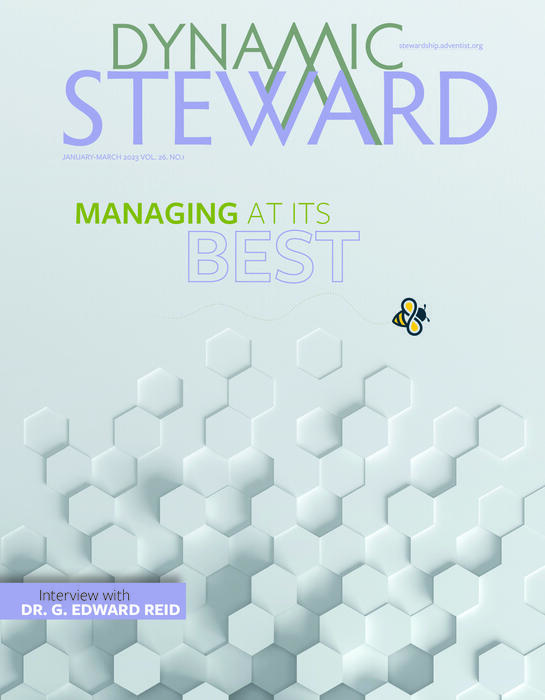Back to the Altar of Living and Dying
One morning a few months ago, I reached for my phone and saw this news headline: “HORROR: MASS SHOOTING AT COLORADO LGBTQ CLUB—5 DEAD, 18 WOUNDED.” For the first time in countless mass shootings, that uniquely tragic American affliction that seems to only grow in frequency, I put away my phone and decided not to read the details of this new tragedy. That was not easy, but I did not want to hear another call for “thoughts and prayers,” while the next mass shooter polished his unregulated weapon of war in obscurity somewhere. I was running low on compassion but high on outrage. I was not prepared for another tale outlining the depth of depravity to which the human heart can sink.
While I looked away from this disturbing news report, there was something much darker from which I could not escape. I could not surf away from it like some page on the internet. I had the abiding sense that the depraved human heart that gunned down the people at the Colorado club the night before is the same heart that used to beat in me. The thought horrified me, and I recoiled from it. I would like to think that I am different, that I was not capable of such a crime, but nothing could be further from the truth. Without the new heart that God gave me when I accepted Christ as my Savior, I would be capable of anything.
Heart of the Matter
The unregenerate human heart is truly something to behold. It is capable of wonderful acts of love and kindness, such as the TikTok guy who gives money to kind strangers, or the person who feeds the hungry on the streets of Mumbai. There is good to see in our world, but we also have to admit that evil is likewise manifested wherever we look. Wherever dastardly deeds are done, deranged human hearts are at work.
Quite frankly, the Bible does not have much good to say about human hearts that are not given in sacrifice to God. God, through Jeremiah, states, “The heart is deceitful above all things, and desperately wicked; who can know it?” (17:9). The heart referred to here is not the “ticker” in our chest but the “ticker” in our head—the “brain heart,” the seat of our thinking and the center of our moral and intellectual being, the fount from whence our desires flow. Jesus made the point even clearer when He observed, “A good man out of the good treasure of his heart brings forth good; and an evil man out of the evil treasure of his heart brings forth evil. For out of the abundance of the heart his mouth speaks” (Luke 6:45).
A Living Dying
With a heart so polluted, so out of step with God, we have absolutely no hope of ever producing good works in any form. The Bible does not tell us to coddle it, convert it, reform it, or regenerate it. In invites us to kill it. The apostle Paul begs us to “present your bodies a living sacrifice, holy, acceptable unto God, which is your reasonable service” (Rom 12:1, KJV)—“your spiritual act of worship” (NIV).[1] In the ancient Jewish spiritual economy, biblical sacrifices were brought alive to the temple and then slaughtered by the priests who ministered in the temple. Paul flips the sacrificial requirements of the Mosaic law and calls for a “living dying.” He is saying to all who would follow Christ, “Live physically, but die in every other way!” Throw everything else—ideas, thoughts, actions, behaviors, desires, pleasures, pains—on the altar of sacrifice to God.
But what does any of this have to do with stewardship? In a word, EVERYTHING! Stewardship is life, it is an exercise in living and dying. The act of caring for God’s gifts and resources is a way of living, a way of being, a way of walking with God, and a way of dying to all that is not of God! Notice the depth of Ellen White’s appeal for heart transformation in the following quotation excerpted from a letter she wrote to a leader who was a poor steward of God’s resources: “Let the prayer go up to God, ‘Create in me a clean heart’ (Psalm 51:10); for a pure, cleansed soul has Christ abiding with them, therein, and out of the abundance of the heart are the issues of life. The human will is to be yielded to Christ. Instead of passing on, closing the heart in selfishness, there is need of opening the heart to the sweet influences of the Spirit of God. Practical religion breathes its fragrance everywhere. It is a savour of life unto life.”[1]. Unless our hearts are brought under the influence of Christ through the yielding of our wills to the Holy Spirit, we cannot be God’s stewards.
Ellen White further comments, “It is only when Christian motives are fully acknowledged, and the conscience is awake to duty, when divine light makes impressions upon the heart and character, that selfishness is overcome, and the mind of Christ is exemplified. The Holy Spirit, working upon human hearts and characters, will expel all tendency to covetousness, to deceptive dealing. . . .”[2] No wonder the apostle Paul begged us to simply bring our bodies to God. This is our only hope of being transformed!
Be Transformed
More specifically, Paul encouraged believers everywhere to be transformed by the renewing of their minds (Romans 12:1). Ellen White seconded Paul’s assertion when she wrote, “The mind controls the whole man. All our actions, good or bad, have their source in the mind. It is the mind that worships God and allies us to heavenly beings.”[3] The mind is the heart of a life of stewardship to God! Not only that, but “it is a law of the mind that it gradually adapts itself to the subjects upon which it is trained to dwell. If occupied with commonplace matters only, it will become dwarfed and enfeebled. If never required to grapple with difficult problems, it will after a time almost lose the power of growth.”[4] Ellen White goes on to note that nothing will so “metamorphose” the human mind like time spent in the presence and Word of God.
This truth is at the very heart of the Back to the Altar initiative currently being launched in the Seventh-day Adventist Church. A recent survey of Adventists found that only 52 percent have a personal devotional life, and only 37 percent of Adventist families have morning and evening worship. If so many Adventists are not tending their worship altars, how can we hope to become the dynamic stewards that God needs in a perishing world? Transformed people have no problem being cheerful givers (2 Corinthians 9:7) or faithful stewards (1 Corinthians 4:2). Everything belongs to God!
The Most Important Thing
If there is one thing that stewardship leaders must do to develop followers of God who faithfully manage their gifts and resources in service to God, they must encourage members to spend time—morning, evening, and all the time in-between—in communion with God! This is the first and most important thing! This presupposes, of course, that leaders lead by example. If the leader is not worshipping God faithfully at their altar, they will not be able to promote what they are not doing. Dynamic stewards lead by example.
Second, leaders must encourage members to “build their altars” at a specific time and place. When the Israelites were delivered from Egyptian captivity, God commanded Moses to tell the people, “One lamb you shall offer in the morning, and the other lamb you shall offer at twilight” (Exodus 29:39, NKJV). God was setting up a priority structure in the lives of His people. The sacrifice was offered at a specific time (morning/evening) and place (the temple). God was to be first, last, and best in the use of their time, talents, resources, and affections. As stewardship leaders, we must invite members to set a time to meet with God each morning and evening. Morning worship is the beginning of an unbroken conversation with God that should continue all day until we meet God again in the evening. The compartmentalized devotional life—one relegated to a few fleeting moments each day—is not enough. We must begin in the morning with God and stay with Him all day long to be faithful managers of His gifts, talents, and resources.
Third, encourage members to quiet their lives, especially the place where they will meet with God. Satan does not want people to worship God. He will do everything in his power to prevent us from meeting with God daily. According to several recent studies, our cell phones/smartphones are some of the biggest distractions we face in life. The average social media user, it is said, spends two hours and 27 minutes a day on social media in 2022, and a 2020 study reported that people used mobile devices for more than 50 percent of the time that they spent on the internet. While devices can be used to enhance worship, we may be better served going to God in analog mode. Show members how to have vibrant devotional worship experiences with God that do not depend exclusively on the use of media. This will not be easy, but such digital spiritual hygiene is therapeutic for modern followers of God.
Finally, expose members to the worship life of Jesus. Ellen White wrote of Him, “The Majesty of heaven, while engaged in his earthly ministry, prayed much to his Father. He was frequently bowed all night in prayer. His spirit was often sorrowful as he felt the powers of the darkness of this world, and he left the busy city and the noisy throng, to seek a retired place to make his intercessions. . . . All night, while his followers were sleeping, was their divine Teacher praying. The dew and frost of night fell upon His head bowed in prayer. His example is left for his followers.”[5] If Jesus, the Ultimate Steward, so prized time with His Father, surely we should follow His example!
_______________________
[1] Ellen G. White, Letters and Manuscripts, vol. 9 (Silver Spring, MD: Ellen G. White Estate, 1894), LT 31A.
[2] Ellen G. White, Counsels on Stewardship (Washington, D.C.: Review and Herald Pub. Assn., 1940), 313.
[3] Ellen G. White, Mind, Character, and Personality, vol. 1 (Nashville: Southern Pub. Assn., 1977), 72.
[4] Ellen G. White, Mind, Character, and Personality, vol. 2 (Nashville: Southern Pub. Assn., 1977), 418.
[5] Ellen G. White, Gospel Workers (Battle Creek, MI: Review and Herald Pub. Assn., 1892), 106.


